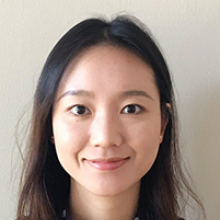Girls Who Code Impact Evaluation Study

Computer and information technology jobs are projected to grow 15% from 2021 to 2031, making computing one of the fastest growing occupations in the U.S. labor market. Women remain underrepresented in the science, technology, engineering, and mathematics (STEM) fields, making up only 27% of today’s STEM workforce. Although women’s participation in STEM fields has increased during the last 30 years, women remain underrepresented in the computer science (CS) field and their participation has declined from 37% in 1995 to 22% in 2022. Thus, it is crucial to change women’s perception of CS by providing trainings that pique their interest in learning CS and preparing them with the necessary skills to pursue CS-related postsecondary education and careers.
In an effort to address gender disparities in the computer science field and promote diversity in the CS pipeline, Girls Who Code offers two free virtual summer programs, the Summer Immersion Program (SIP) and the Self-Paced Program (SPP), specifically designed for female and nonbinary high school students. The summer programs aim to elevate students’ proficiency and enthusiasm in computer science and encourage pursuit of related higher education and careers.
AIR partnered with Girls Who Code to conduct an independent evaluation of the effectiveness of its summer virtual programs. The goal of this study is answer these questions:
- What are the effects of participation in the Girls Who Code’s SIP and SPP programs on majoring in a CS-related field during postsecondary education?
- How do those effects vary by different student groups?
Impact Evaluation Findings
AIR conducted a quasi-experimental study comparing SIP and SPP participants to similar waitlisted students to determine the effects of program participation on majoring in a CS-related field. This study utilized publicly available National Student Clearinghouse data and Girls Who Code records from program participants and program waitlist students for the years 2020-22. The study yielded two key findings.
- First, on average, both SIP and SPP participants were significantly more likely to major in a CS-related field (by 13.2 percentage points and 11.5 percentage points, respectively) than comparison students.
- Second, both SIP and SPP consistently demonstrated positive effects on majoring in a CS-related field across most of the student groups examined, including White, Black/African American, and Hispanic or Latino/a students; students who are historically underrepresented in computing; and students with little to no prior CS knowledge.
This study comes with several limitations that warrant consideration when interpreting findings. First, estimated program effects may be influenced by a few preexisting student characteristics (e.g., GPA and motivation) that we were not able to access and control for in the analyses. Second, certain student groups had small sample sizes, resulting in low statistical power for analyzing variations in program effects.
Summer Immersion Program (SIP). Starting in 2020, Girls Who Code introduced the virtual SIP, a two-week synchronous live program, a response to the COVID-19 pandemic that served as a replacement for the in-person SIP that Girls Who Code originally offered. Throughout the program, participants are introduced to key CS concepts and guided through step-by-step tutorials to complete real-world projects. Participants also have the chance to engage in a mentorship workshop and gain insights into career opportunities in STEM from women actively working in the tech industry.
Self-Paced Program (SPP). Starting in 2021, Girls Who Code launched the SPP, a six-week asynchronous virtual program that incorporates the flexibility of self-directed online learning for students who want to learn at their own pace and prefer not to adhere to a set schedule. From this program, students can choose from courses in Cybersecurity, Data Science + AI, and Web Development tracks to earn certificates in their chosen CS tracks. Students also have the opportunity to build community through weekly live advisory sessions and Girls Who Code partner events.
Learn more about the Girls Who Code summer programs.
